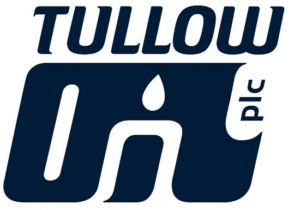Special topics
 Although expectations and optimism for the oil-find of 2007 has waned among Ghanaians, Africa’s leading independent oil and gas exploration and production firm, Tullow Oil Plc, has reiterated its commitment to using Ghana as the heartbeat of its business operations in Africa.
Although expectations and optimism for the oil-find of 2007 has waned among Ghanaians, Africa’s leading independent oil and gas exploration and production firm, Tullow Oil Plc, has reiterated its commitment to using Ghana as the heartbeat of its business operations in Africa.
“Ghana remains at the heart of our businesses,” said Mr. Aidan Heavey, the Chief Executive Officer in an interview with a cross-section of the media in Accra.
Tullow’s listing on the Ghana Stock Exchange and its annual update to Ghanaian shareholders demonstrates the company’s long-term commitment to the country and its desire for Ghanaians to have an opportunity to participate in the industry.
Aidan Heavey, who has been head of the company since 1985, is optimistic that the industry’s downturn will not last forever.
“We have been here before, and surely the industry will bounce back strongly,” he said, certain of the company facing the future with lots of progress and fortune for its investors.
Ghana rode on a wave of optimism after London-based Tullow Oil Plc discovered a large offshore reserve. The World Bank estimated in 2009 that the oil boom would boost government revenue by a third and transform an economy that stood at US$16billion at the time.
In December 2010, when the late President John Evans Atta Mills opened the first oil tap, he pledged to avoid the mistakes of other African oil producers and save revenue for future generations. The resource comes with “serious responsibilities” and the government “must ensure oil is a blessing, and not a curse”, he said.
Five years down the line, the economy is suffering from serious setbacks — leading to government seeking an IMF bail-out to correct imbalances in the economy.
Aidan Heavey told journalists at the Tullow head office in Accra after attending a board meeting last week that, based on its commitment to contribute to development of the country’s oil and gas industry, the company has invested heavily in the TEN Project despite the prevailing not-too-interesting conditions in the industry.
“We are confident the turnaround will come soon, and that is the more reason why we are not relenting on our investments in the country. We will do all that it takes to make the country an attractive investment destination, said Mr. Heavey.
The TEN Project is on track to achieve its first oil by August next year with a gross daily operation capacity of 80,000 barrels (bopd).
The TEN project, which has a total estimated gross cost of almost US$5billion, contains gross reserves of 300 million barrels of oil equivalent and is expected to reach a daily output of around 80,000 barrels of oil by early 2017.
The project derives its name from the three fields — Tweneboa, Enyera and Ntomme — and has a lifetime of approximately 20 years. Around 80% of this is oil and 20% is gas. It is led by Tullow Oil with partners being Ghana National Petroleum Corporation, Kosmos Energy LLC, Andarko Petroleum and PetroSA.
Listed on the local bourse since 2011, Tullow has also helped build the capacity of local expertise in the industry.
The extremely complex TEN mega-project has some level of Ghanaian participation in the construction of the FPSO Prof. John Atta Mills. Indigenous Ghanaian firms Seaweld Engineering and Osram Limited fabricated 362 deck stools for it in Tema and Takoradi. The stools, which provide vital support for the FPSO, were shipped to the construction site in Singapore and installed on the vessel’s deck.
In addition, the FPSO’s anchor piles were fabricated at a new yard in Sekondi. Aside from that, Tullow is building capacity for locals in the industry.
Aside from the Accra bourse, it is quoted on the London and Irish stock exchanges. The group has interests in over 130 exploration and production licences across 22 countries which are managed as three regional business units — West and North Africa, South and East Africa, and Europe, South America and Asia.
In its financial statement for the first six months of 2015, it stated that the company’s West Africa oil production will grow to “around 100,000 barrels of oil per day net to Tullow in 2017”, as a result of the TEN project being brought on-stream in mid-2016.
This production increase will be hugely significant for Tullow, whose average West Africa oil output averaged 63,400 barrels of oil per day in 2014. The company’s oil production for the region elevated slightly during the first six months of this year to average 66,500 barrels per day; but even based on this improved figure, the production start-up of TEN will result in a more than 50 percent increase of the company’s current West Africa output.
In fiscal terms, the production start-up of TEN will deliver “significant additional cash flow” to Tullow Oil. Based on the aforementioned facts, it’s clear that the production start-up of the TEN project is extremely important for Tullow.
It’s likely to give the company a major production boost and could help Tullow improve its financial position, at least until ITLOS makes its final decision on the maritime boundary dispute between Ghana and Côte d’Ivoire in late 2017.
If this ruling goes in favor of Tullow, the TEN field is likely to play a key part in the company’s future. If the decision goes against the embattled energy firm, which posted its first loss in fifteen years in 2015 and scrapped its dividend as a result, it will undoubtedly be a major blow for the company.
Source: http://thebftonline.com/commodities/oil-gas/15728/Tullow-in-for-the-long-haul-CEO.html#sthash.HYUsDiTp.dpuf